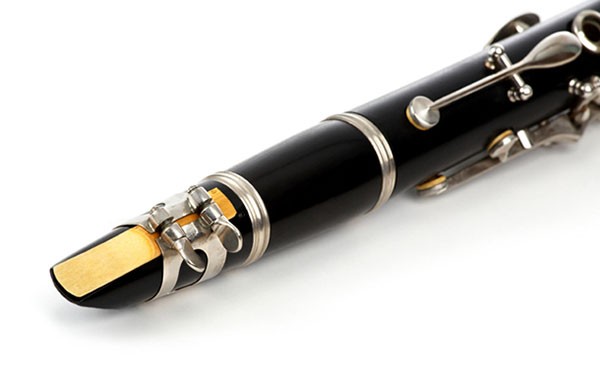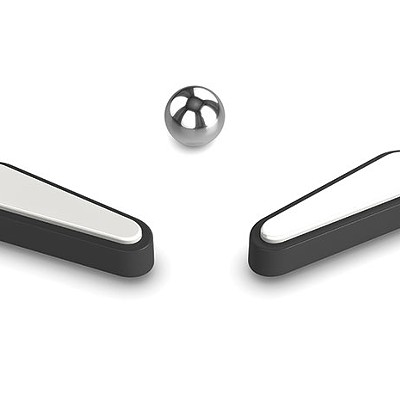It's a fetid Tuesday night at the North Side Elks, and the air inside is redolent with fried shrimp. People are filling the long tables in the Allegheny Room: moms 'n' pops, grammers 'n' grampers, kids giggling and running about.
Up on stage, the members of the Pittsburgh Banjo Club unsheathe their instruments: banjoes, sure, but also brass — trumpet, tuba, trombone — in the service of simple, century-old tunes.
Sitting by himself, a short man with a shaved head fingers a metal clarinet. Wearing a green zippered jacket, plaid shirt and blue pants, he runs scales between sips of a Penn Pilsner, seemingly almost oblivious to his surroundings.
But as the band launches into "Yes, Sir, That's My Baby," the leader comes over and whispers to the clarinetist, who, at the appropriate time, stands and rips off a solo. He ranges from lows to highs as easily as mountain goat ascending a sheer cliff. Perfectly ducking in and out of the melody, he takes the ending high, his timing and phrasing exquisite.
The audience applauds. The soloist nods slightly, barely smiling, and sits.
"We're fortunate tonight to have the great Lou Schreiber with us," the leader tells the audience. "Pittsburgh's premier jazz musician."
"There are very famous people — you only have to say their first name and everyone knows who they are," offers Henry Shapiro, a guitarist and frequent Schreiber bandmate. "Miles, for instance, or Madonna. In Pittsburgh jazz circles, Lou is one of those.
"He has a harmonic depth that most players don't," Shapiro adds. "Perfect intonation. Perfect timing. When I play with Lou, I have to bring my ‘A' game."
Schreiber has been bringing his own ‘A' game since childhood. Blind from birth and a pianist since second grade, Schreiber was a musical prodigy at the Western Pennsylvania School for Blind Children: By the time he was 10, he was playing in a band with classmate Eric Kloss, the sax colossus. As a teen, he demonstrated an encyclopedic memory for melodies, an incredible gift for harmony, rhythm, time.
After switching to reeds, Schreiber played six hours a day, gigged around the city four nights a week, all jazz all the time. "It had fire when I started playing it," he recalls. "And the sax was like a drug. I couldn't put it down."
He hit all the Hill District hot spots, sitting in at the legendary Hurricane and Crawford with George Benson, Jimmy McGriff and Richard "Groove" Holmes.
But when Kloss split for New York to cut blistering jazz sides, Schreiber elected to stay home. "Pittsburgh was enough for me," he recalls. "I knew the place."
And the place certainly knew him. A sideman rather than a leader, Schreiber became a Zelig-like musical chameleon. He fit in everywhere, and nowhere better than in the lobby of the William Penn hotel, where for 18 years he laid down some of the most exquisite sounds in local memory.
No surprise that when vocal superstar Jimmy Sapienza fronted Five Guys Named Moe — one of the hardest-driving bands on the planet — Schreiber was one of the Moes. Or that two weeks after his Banjo Club appearance, Schreiber found himself a mile away, playing at the North Side's Emmanuel Episcopal Church.
The church's jazz series, which has been running since the early '80s, draws jazz luminaries and a decidedly ecumenical crowd. Tonight the audience is small, but includes a mix of ages and races. "Living the question: What's the next thing that I should be doing?" Father Donald Youse says, by way of introducing the spiritual side of two jazz classics.
The band begins to play "Walkin'," a tune that first appeared on a mid-'50s Miles Davis release. The melody — which prowls about, both physically and spiritually — is a good bouncy line to lead into evening. Schreiber's tenor recalls Sonny Rollins, a strong, self-assured player in his prime. Schreiber is not a blower, not a John Coltrane. He's softer, more pensive. This is church, after all; we're on a spiritual quest, not at a prize fight.
The musicians segue into Herbie Hancock's "Maiden Voyage," the familiar, legato chords of the jazz classic just right for a trek into the spiritual self. Schreiber gently moves in, a man hesitantly sliding into uncharted waters. As a storm picks up, he plays with more intensity; there is much to be cleansed, much to be accomplished. The tenor reasserts the theme, the depth of the soul's quest.
People nod, heads bobbing in time with the music.
"I can feel an audience when I play," Schreiber says. "I can feel when they're happy. I like that."



















